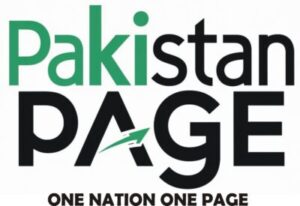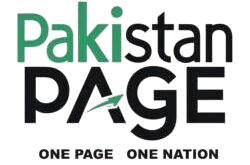Leavitt told a regular briefing that Trump was interested in pursuing a diplomatic solution with Iran, but his top priority was ensuring that Iran could not obtain a nuclear weapon.
She said any deal would have to prohibit enrichment of uranium by Tehran and eliminate Iran’s ability to achieve a nuclear weapon.
“The president is always interested in a diplomatic solution …he is a peacemaker in chief. He is the peace through strength president. And so if there’s a chance for diplomacy, the president’s always going to grab it,” Leavitt said. “But he’s not afraid to use strength as well I will add.”
Leavitt declined to say if Trump would seek congressional authorization for any strikes on Iran. She said Washington remained convinced that Iran had never been closer to obtaining a nuclear weapon.
Earlier, Donald Trump has denied reports claiming he approved a plan to attack Iran, rejecting a news story published by the Wall Street Journal.
Taking to his social media platform Truth Social, Trump directly referenced the publication, stating: “The Wall Street Journal has no idea what I’m thinking about Iran.”
The Wall Street Journal had reported that Trump had approved a plan to strike Iran, but delayed final authorisation in the hope that Tehran might suspend its nuclear program.
Addressing the growing speculation, Trump said, “Everyone is asking me about it, but I haven’t made any decision.”
In his separate remarks, he stated that Iran had attempted to reach out for dialogue, but he had made it clear that the opportunity had passed.
“Why didn’t Iran reach out two weeks ago?” Trump questioned. “Now they want to talk, but the time for negotiations is over.”
Meanwhile, Iran’s Supreme Leader Ayatollah Ali Khamenei has expressed strong confidence that Iran will achieve a “great victory,” stating that Allah is merciful and supports those who stand for truth and justice.
In a message posted on the social media platform X, Khamenei addressed the Iranian nation, urging them not to fall into despair. “My people, if you become even slightly discouraged, the enemy will intensify its pressure and will not let you go,” he warned.
He praised the Iranian people’s unity in the face of adversity and called on them to continue their resistance with full strength.
Iranian Foreign Minister Abbas Araghchi on Thursday said he would head to Geneva to attend talks on his country’s nuclear programme with counterparts from key European powers France, Germany and Britain and the EU’s top diplomat.
Israel on Thursday attacked Iran’s nuclear facilities as Iranian missiles struck several sites in Israel, including a “direct hit” on a medical centre in the south of the country. Follow our liveblog for the latest developments.
“We will meet with the European delegation in Geneva on Friday,” he said in a statement carried by state news agency IRNA.
IRAN ACCUSES UN NUCLEAR AGENCY OF BEING ‘PARTNER’ TO ISRAEL’S ‘UNJUST WAR OF AGGRESSION’
Iranian foreign ministry spokesperson Esmaeil Baghaei has criticised UN nuclear watchdog chief Rafael Grossi and accused the International Atomic Energy Agency (IAEA) of being a partner to an “unjust war of aggression” initiated by Israel.
In a post on X, Baghaei responded to an interview with CNN in which Grossi said there was no evidence of a systematic Iranian effort to develop nuclear weapons.
“This is too late, Mr. Grossi,” Baghaei wrote, adding that an IAEA resolution declaring Iran in breach of its obligations under the nuclear Non-Proliferation Treaty had been used as a pretext for Israel to strike Iran.
“Misleading narratives have dire consequences, Mr. Grossi, and demand accountability. You betrayed the non-proliferation regime; You’ve made IAEA a partner to this unjust war of aggression,” he wrote.
IRAN SAYS ‘MAIN TARGET’ OF ATTACK THAT HIT ISRAELI HOSPITAL WAS MILITARY SITE
Iran has said the main target of a missile attack that hit the Soroka hospital in southern Israel was an Israeli military and intelligence base, not the health facility.
“The main target of the attack was the Israeli Army Command and Intelligence Base (IDF C4I) and the Army Intelligence Camp in Gav-Yam Technology Park, located in the vicinity of the Soroka Hospital,” state news agency IRNA said.
It said the hospital was “exposed only to the blast wave”, and that the “direct and precise target” was the military facility.
ISRAEL ORDERS MILITARY TO ‘INTENSIFY STRIKES’ ON IRAN AFTER MISSILE HITS HOSPITAL
Israel’s defence minister has said Iran’s Supreme Leader Ayatollah Ali Khamenei will be “held accountable” for a missile strike on an Israeli hospital and added that he has ordered the army to “intensify strikes” on the Islamic republic.
“These are some of the most serious war crimes — and Khamenei will be held accountable for his actions,” Israel Katz said, adding that he and the prime minister ordered the military “to intensify strikes against strategic targets in Iran and against the power infrastructure in Tehran, in order to eliminate the threats to the state of Israel and to shake the Ayatollahs’ regime”.
PUTIN AND XI HOLD A CALL AND AGREE DE-ESCALATION IS NEEDED
Russian President Vladimir Putin and Chinese President Xi Jinping held a phone call on Thursday during which both leaders condemned Israel for its strikes on Iran and agreed de-escalation was needed, the Kremlin said.
Both men “strongly condemn Israel’s actions, which violate the U.N. Charter and other norms of international law,” Kremlin aide Yuri Ushakov told reporters.
“Both Moscow and Beijing fundamentally believe that there is no military solution to the current situation and issues related to Iran’s nuclear programme,” said Ushakov.

In the call, Xi also urged more diplomatic efforts to de-escalate the conflict, Chinese state news agency Xinhua reported.
Xi, without naming the United States, said “major countries” with “special influence” in the region should step up diplomatic efforts to cool down the situation, the report said.
ISRAEL SAYS IT TARGETED NUCLEAR SITES IN IRAN’S NATANZ AND ARAK OVERNIGHT
The Israeli military said on Thursday it had targeted the Arak nuclear reactor in Iran overnight and struck what it said was a nuclear weapons development site in the area of Natanz.
Among its nuclear sites, Iran had a partially built heavy-water research reactor originally called Arak and now Khondab.
Iranian media reported on Thursday morning that air defences were activated in the area of the Khondab nuclear facility, with two projectiles hitting an area close to it.
Officials told Iranian state TV that evacuations were made prior to the strikes and that no risks of radiation or casualties were detected. There was no mention of any damage.
Natanz, which Israel had previously struck during its six-day-old aerial war with Iran, was the site of a complex at the heart of Iran’s nuclear programme that included two enrichment plants.
The Israeli military added that it targeted the structure of the reactor’s core seal in Arak, which it identified as a key component in plutonium production.

